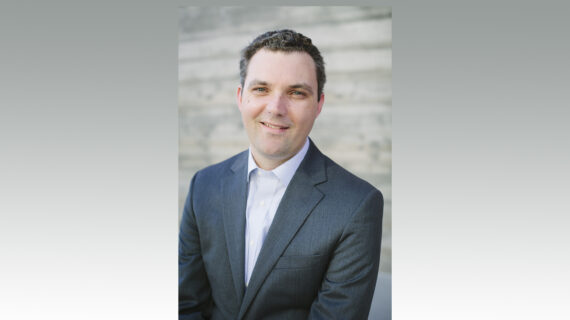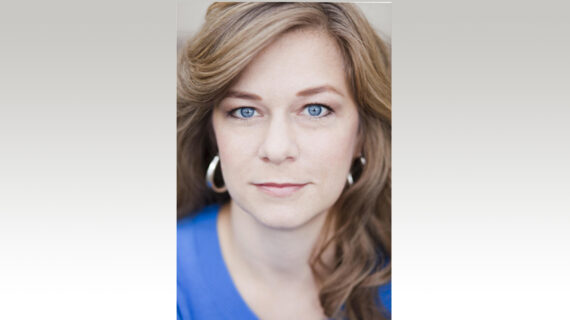Frederica Freyberg:
President Donald Trump stormed Europe this week, first to Brussels and the NATO meeting, then to London where he will remain for meetings until Sunday. At NATO he ruffled Allied feathers with calls for more European nation military spending and complaints that Germany is too beholden to Russia for oil. Concerns that his messages suggested a desire for the U.S. to leave NATO were somewhat offset as the president left the summit declaring that the United States’ commitment to NATO remains “very strong.” All of this takes shape with a backdrop of stepped-up tariffs against China and in advance of President Trump’s meeting with Russian President Vladimir Putin in Helsinki on Monday. And we have a new nominee for the U.S. Supreme Court. We will take all these topics now to Republican U.S. Senator Ron Johnson who himself recently returned from an official visit to Moscow. In addition to being chair of the Homeland Security Committee, Senator Johnson is chair of the Foreign Relations Subcommittee on European and Regional Security Cooperation. And senator, thank you very much for joining us.
Ron Johnson:
Well Frederica, and we have a couple hours to discuss all this, right?
Frederica Freyberg:
Yes, just about eight minutes, sir. So let’s get started. This week the U.S. Senate, including yourself, I understand, voted to defend NATO even as President Trump presented this tough tone with alliance countries over defense spending. Why the need to defend NATO?
Ron Johnson:
Well, there are some questions based on some of the president’s rhetoric, but the president’s right. President Bush, President Obama urged NATO countries to live up to the 2% commitment. I think because the President Trump’s cajoling, hopefully they will live up to that commitment sooner. More are living up to the 2% and more are saying they’re going to speed up their commitment. So that’s a good thing. We have a number of NATO partners that are opposed to Nord Stream 2 pipeline, believing, as I do, that the construction of that pipeline will increase Russias geopolitical power within Europe. So the goals that President Trump is stating that he’s pushing for, it might ruffle some feathers, but they’re things that absolutely are necessary. But as chairman of the European Subcommittee on Foreign Relations, I meet with European delegations all the time. That tough talk is not something they’re used to hearing. But I conveyed to those European partners that as the first branch of government, Congress is unanimously, I think unanimously supportive of a long-term relationships with both Europe and NATO. So we just assure them that even with President Trump’s tough negotiating stance, I believe he’s firmly committed to NATO as is Congress.
Frederica Freyberg:
Now, next up the president’s summit with Vladimir Putin. You were in Russia yourself last week and quoted as saying that Russian meddling in the 2016 elections didn’t represent “the greatest threat to our democracy.” So no big deal?
Ron Johnson:
It is a big deal. It’s very serious. It’s not acceptable. But I was actually in the secure briefing in September 2016 when the Obama Administration advised the big eight plus chairman of Homeland Security, both and ranking member of both houses, that Russia tried to hack into voter files but we’ve got it covered. DHS is working with the states and they’re asking us at that point in time to go out and let the American people know that we’ve got it covered and that the election will be legitimate in November of 2016. But then the wrong person lost and all of a sudden there’s this narrative that it’s the greatest threat to our democracy. It’s unacceptable. It’s serious. But it is not the greatest threat to our democracy. I don’t want this blown out of proportion. I went to Russia because Russia holds close to 7,000 nuclear weapons. They are an unfriendly adversary. They’re being aggressive throughout the world, particularly in eastern Asia. They are disrupting elections. They were part of a potential plot to assassinate the prime minister of Montenegro. So I take all these things very seriously. I happen to think the dialogue with Russia is important. And particularly at all levels. It’s good that we’re having head of state dialog. It’s important at the ministerial and secretarial level. But parliamentarian and legislative level is also incredibly important. Just like our military exchanges in terms of deconflicting in Syria is important. Dialogue, from my standpoint, is good. If we can build relations particularly at a time of crisis, could be crucial. That’s what I was trying– certainly trying to do last week when I was in Moscow.
Frederica Freyberg:
Moving to another matter, what do you think of the escalating trade war the president has sparked with his imposition of tariffs and then the resulting retaliatory tariffs that clearly affect Wisconsin?
Ron Johnson:
Im highly concerned. I’ve made those views public for quite some number of months now. President Trump is absolutely correct when he’s demanding reciprocal treatment on trade from all the trading partners. He’s absolutely correct when he points to China as being the primary abuser of world trading rules. But I just happen to think the best way to get China to abide by those rules is in a united front of the rest of the trading world pressuring China to behave. So I’m highly concerned. President Trump in his administration are talking about using this negotiating tactic. Okay, fine. But use that leverage. Bring these negotiations to conclusion so we can move forward because we’ve– president’s done a great job. He stopped and ended the regulatory burden. We have a more competitive tax system. He’s brought certainty and optimism to the economy. This trade war is bringing uncertainty and could undo all the positive things he has done previously.
Frederica Freyberg:
Now, you’ve expressed frustration, displeasure, even disbelief over the Department of Homeland Security’s policies and ability to reunite families separated at the border. At week’s end does your frustration persist?
Ron Johnson:
Well the good news now is we’ve gotten some information. Ive had good conversations with Secretary Nielson, Secretary Azar, the head of CBP Commissioner McAleenan, and I have been reassured that their first and foremost concern is the welfare of the children. I truthfully believe that. And once we finally started getting the kind of information — they’re reluctant to give it. Quite honestly, the whole court case threw their plans in disarray. CBP’s process generally takes about 44 days. HHS’s process in terms of identifying for sure the adult was the parent took about 48 days. They were on path to marry those processes and to have a pretty good effect. The court requirement that they do this in a couple weeks really threw them in disarray. So now I understand that. But primarily I understand that the secretaries, the commissioner, their first priority is the welfare of the child. We’re starting to see in terms of the five-year-olds, the 103 children less than five years, they’re reuniting those that could be reunited. They’ve identified some children that are ineligible for reunification because it puts the safety of the child at risk. They’ve also identified a certain number of those children where they don’t have enough information to make sure the child’s safety won’t be put at risk. So again, I think it’s important the American public understand the officials in the Trump Administration are primarily concerned about the safety of the children.
Frederica Freyberg:
What is your position on the zero tolerance policy that resulted in the separation of children from their parents?
Ron Johnson:
The Trump Administration is trying to enforce the law and what — you know, and they knew this. They found out that in trying to enforce the law, unfortunately you’re forced — when people come into this country illegally, because of I think bad legal precedent, legal loopholes, bad law, we’re forced to separate those families. If they present themselves to port of entry and claim asylum, they’re able to be kept together. But when they come to this country illegally, in order to for us to adjudicate those claims, with the clock ticking, the administration was forced to separate the families. Now, because the Trump Administration has ended that enforcement policy, what we virtually have is an open border, because now people come to this country. If they do it illegally, they come across the borders, they’re going to be unified and we’re going to have to release them into the interior and it’s going to be more difficult to actually have them show up at hearings and it’s going — it’s actually going to incentivize more people coming in here in family units. By the way, they’re gaming the system. When I was talking to the commissioner, he said the number of people coming in families is down because people are realizing that one child per one adult is going to be the best way to exploit our system. So we’ve got a horribly broken legal immigration system. We need to fix that. I’m trying to do that as chairman of Homeland Security. My problem is most of these laws don’t come under my committee’s jurisdiction. I’m kind of dependent on the Judiciary Committee acting in a bipartisan way which I think we could probably do in our committee is work in a nonpartisan way to try and fix these specific problems.
Frederica Freyberg:
I need to get your take on the nomination of Brett Kavanaugh.
Ron Johnson:
I think Brett Kavanaugh is a excellent choice. Obviously, highly qualified as a jurist. But just a decent person. And what gives me comfort in terms of this nomination is Brett Kavanaugh is a judge. A couple quotes, this is from Judge Kavanaugh. “A judge’s job is to interpret the law, not to make law, not to make policy.” Very similar to what Neil Gorsuch talked about a judge’s role was to apply the law, not to alter it. That’s all I’m looking for is a well-qualified judge. I don’t want a legislator. I don’t want a activist jurist on the court. I want a judge, which means a lot of times he’ll make rulings that I won’t really like because I don’t like a lot of law. But it’s my job to try and change those laws, not rely on judges to change them for me.
Frederica Freyberg:
All right. Senator Ron Johnson, thanks very much for your time.
Ron Johnson:
Have a great day.
Frederica Freyberg:
We spoke with Senator Johnson before the news came this afternoon of the indictment of 12 Russian military intelligence officers for hacking Hillary Clintons presidential campaign and the Democratic Party. In response to that, Johnson said, “Any foreign interference in our elections is unacceptable.” Democratic Wisconsin U.S. Senator Tammy Baldwin said, “This isn’t a hoax and the Special Counsel’s investigation is not a witch hunt.” As to the nomination of Judge Brett Kavanaugh for the U.S. Supreme Court, Baldwin says she will not vote to support him, saying, “The stakes are too high for the American people, who do not want the Supreme Court to advance a political agenda to overturn the law of the law on health care for people with pre-existing conditions, women’s reproductive health and the constitutional rights and freedoms of all Americans. The people of Wisconsin need a fair, impartial and independent Supreme Court justice who will stand up for them, not for the powerful special interests. I don’t have confidence that Judge Kavanaugh would be that justice.”
Search Episodes
Related Stories from PBS Wisconsin's Blog

Donate to sign up. Activate and sign in to Passport. It's that easy to help PBS Wisconsin serve your community through media that educates, inspires, and entertains.
Make your membership gift today
Only for new users: Activate Passport using your code or email address
Already a member?
Look up my account
Need some help? Go to FAQ or visit PBS Passport Help
Need help accessing PBS Wisconsin anywhere?

Online Access | Platform & Device Access | Cable or Satellite Access | Over-The-Air Access
Visit Access Guide
Need help accessing PBS Wisconsin anywhere?

Visit Our
Live TV Access Guide
Online AccessPlatform & Device Access
Cable or Satellite Access
Over-The-Air Access
Visit Access Guide
 Passport
Passport











Follow Us